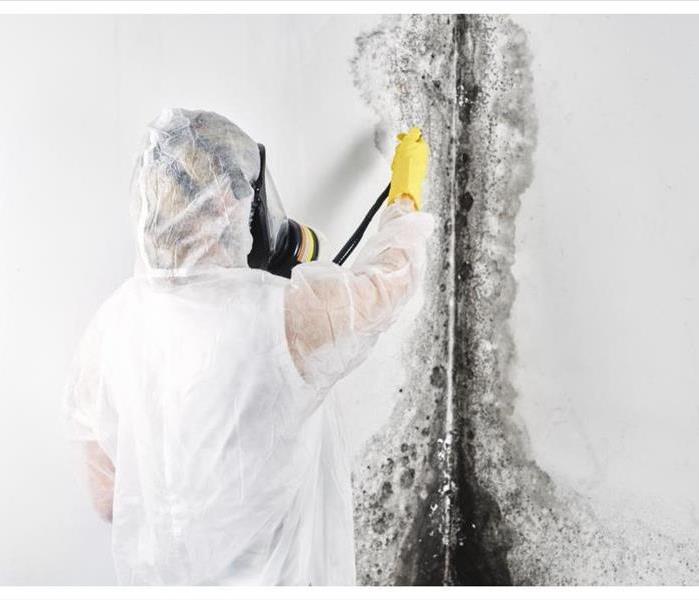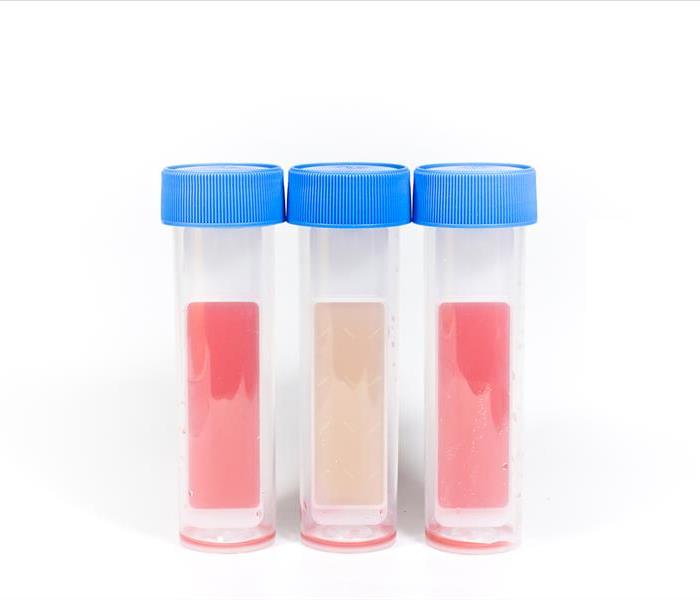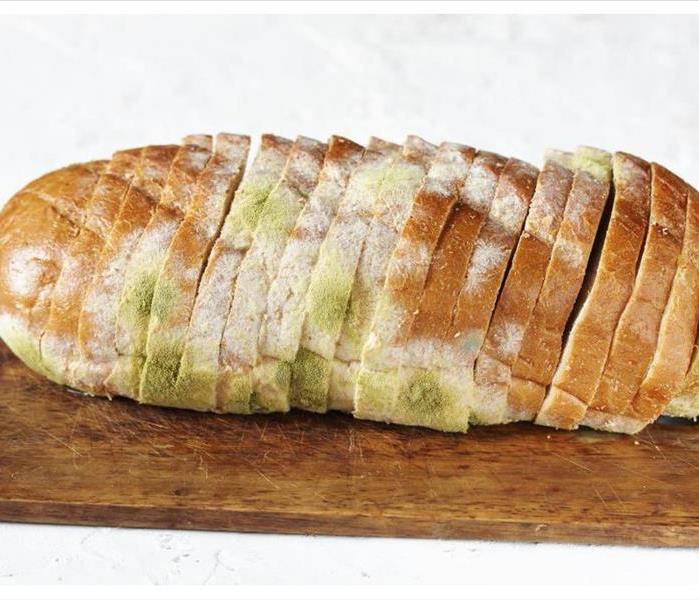Recent Mold Remediation Posts
Why You Should Choose Only Certified Mold Removers
12/22/2020 (Permalink)
 Choose an IICRC approved renovator for your mold removal needs!
Choose an IICRC approved renovator for your mold removal needs!
When your home requires mold removal, only hire a certified mold specialist. To do so, select one that has been blessed by an educator-approved by the Institute of Inspection, Cleaning and Restoration Certification. A non-profit organization servicing more than 25 countries, the IICRC sets standards for many restorations, cleaning, and inspection disciplines.
Finding a Licensed Mold Remover
In many states, technicians are not required to hold official mold certification in order to practice. States that mandate removers carry a license are:
- New York
- New Jersey
- Florida
- Tennessee
- Texas
- Louisiana
When searching for a mold renovation service outside these territories, check that the individual you are considering possesses legitimate certified mold treatment credentials.
Regarding Your Licensed Mold Remover
Choosing an IICRC-approved renovator means that your contractor is able to maintain certain ethical expectations. As members in good standing, every certified mold remediation specialist must follow a strict set of rules that assures satisfactory customer service.
Because the IICRC provides standardized training, teams carrying this stamp of approval have the skills and knowledge to complete an entire project safely and effectively. The organization further offers updated learning opportunities, meaning you should anticipate specialists who have a working familiarity concerning their discipline’s latest advances.
Most importantly, IICRC businesses are required to carry insurance, meaning that should something go wrong you and your property remain protected.
Mold has the ability to regrow if not eliminated properly. Hiring someone without accurate knowledge may mean a quick return of the unwelcomed spores you already paid to have evicted. Confirm with the IICRC that any prospective agent has been truthful regarding their status to avoid this from happening.
If you need a certified mold remover to stamp out a fungal assault in Louisa, VA, pick one that comes bearing an endorsement from the industry’s authority. Doing otherwise means placing your family and home at unnecessary risk.
3 Problems Experts Have With Home Mold Testing Kits
12/3/2020 (Permalink)
 At home mold testing kits.
At home mold testing kits.
Experts agree that home mold testing kits are no substitute for an investigation by a professional mold remediation company. Mold industry organizations, government agencies, and consumer groups have all issued statements advising homeowners against using these kits. Here are 4 common concerns experts raise about DIY mold tests.
1. Agar Sensitivity
Most home mold kits use a petri dish containing a common sampling medium called agar. You place the open dish in your home and wait for mold spores to grow on the agar, then seal the dish and mail it to a lab. Agar has a limited shelf life; however, some test kits don’t have an expiration date or a manufacturing date. Agar is also sensitive to heat and cold, and there’s no way to know how the kits were handled or where they were stored before they landed on your store shelf.
2. Shipping Requirement
All home mold testing kits require you to ship the sample to a lab. But once you place your sample in the mail, you have no control over what happens to it before it reaches its destination. Exposure to hot or cold temperatures, like in the back of a mail truck or on a loading dock, can damage the sample and throw off your results. Many DIY kits use glass slides, which are prone to breaking during transit.
3. Meaningless Lab Results
Mold levels vary from place to place and season to season; there is no universal, “normal” level. A mold kit can’t tell you what the “normal” levels for a home in Madison County, VA, should be. Without knowing what’s normal, it’s impossible to tell whether the levels found in the test dish were too high. In addition, professional mold tests measure the density of mold spores in a specific amount of air. DIY kits can’t provide this information, since they have no way of measuring the volume of air flowing past the test dish.
A home mold kit may be able to detect mold spores in your home, but it shouldn’t be considered a reliable mold testing option.
Preventing Bread From Getting Moldy
11/17/2020 (Permalink)
 What should you do when you find mold on your bread?
What should you do when you find mold on your bread?
It's possible for mold to grow on almost anything, as long as there's an adequate amount of moisture for it to thrive off of. Even so, some items are significantly more prone to mold growth than others, including bread. Read on to learn how to prevent bread mold from forming in your kitchen in Louisa, VA.
Mold Prevention Tips
The following tips can help prevent mold from forming on your freshly baked or bought bread:
Consume the bread as quickly as possible: You don't necessarily have to feast on the entire loaf the second you return from the grocery store, but you should attempt to avoid storing it for long periods of time.
Store your bread in a breadbox: Breadboxes are nifty tools designed to keep and store bread for prolonged periods. They help keep your bread dry by preventing moisture from building up. Even so, they can only do their job for so long, so don't assume that your bread is automatically safe.
Use ingredients that contain oil when baking bread: If you prefer to bake your own bread, opt for ingredients that contain oils. This includes eggs, milk, butter and more. These ingredients help prolong your bread's freshness.
Store bread in the freezer for prolonged periods: If you really do need to keep your bread fresh for a long time, your best bet is to store it in the freezer. Mold spores aren't capable of surviving in conditions that cold.
What to Do When You Find Bread Mold
Even if you do everything right, safety is not always guaranteed. If you do find fungus growth on your bread, then you need to throw it away. Store the moldy bread in a plastic bag before disposing of it in a covered trash can. Next, thoroughly clean the area where the bread was found, as the spores can spread quickly. Fridge mold can quickly infect the rest of your fresh ingredients.
Bread mold is a common occurrence that isn't necessarily indicative of a larger mold problem. If you do suspect a bigger issue, contact mold remediation experts for support.




 24/7 Emergency Service
24/7 Emergency Service


